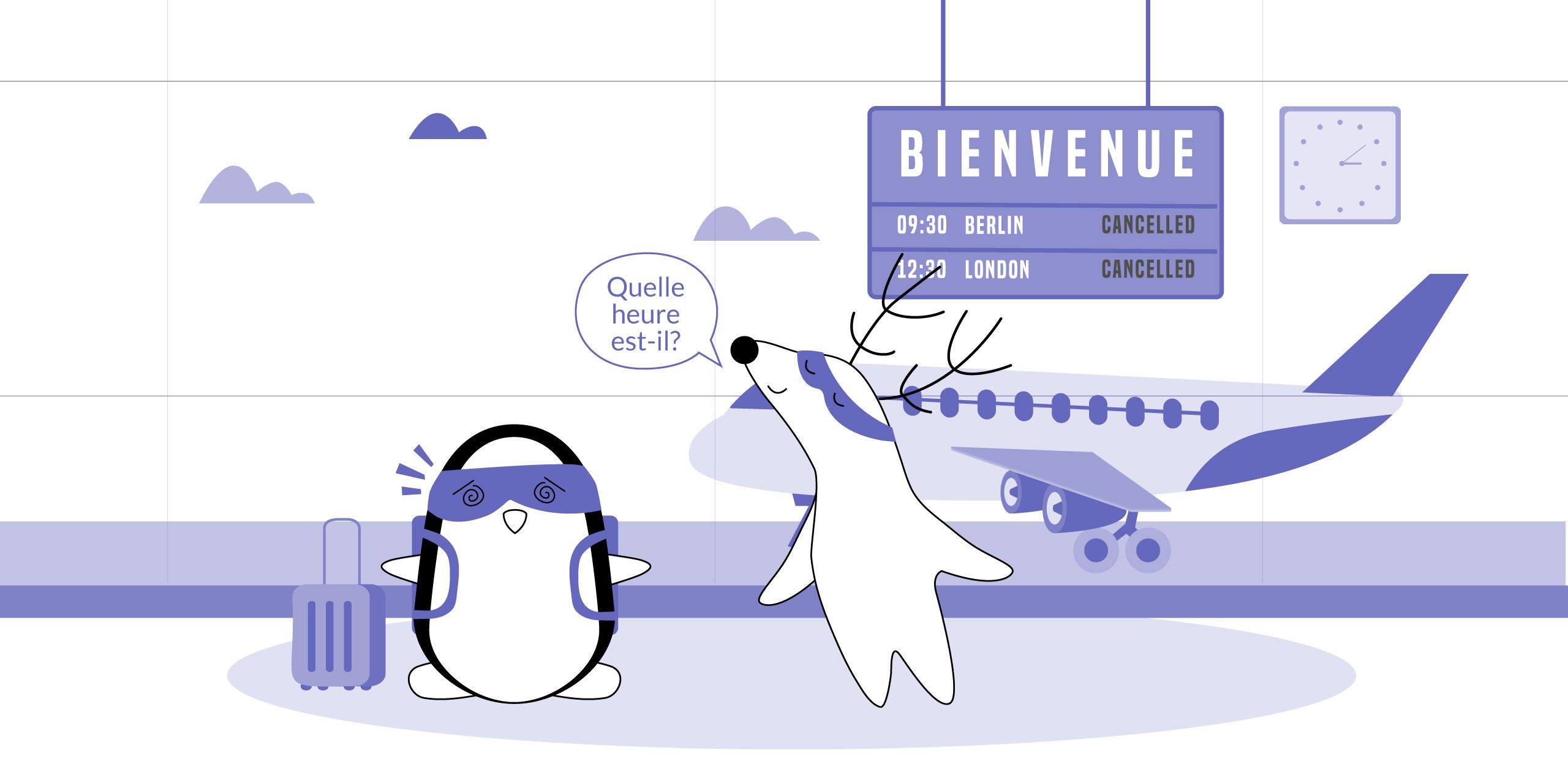
Learning to tell the time in a second language can be difficult, but it’s not impossible. In this article, let’s learn about all of the necessary vocabulary that is needed to tell time in French.
In the French language, there are a variety of words that denote different times of day, week, month, etc. These words are not always translated accurately into English, and can be confusing for English speakers learning French. Let's explore some of these words and their meanings so you can easily tell time and ask questions about it in this language. Read on.
Important Things About Telling Time in French
Learning just the basic vocabulary is not enough if you want to talk about time in French. Just like there are subtle rules about time-telling in English, there are similar points in French.
When describing what you’re currently doing, telling what time is it, or making appointments, it’s important to remember:
How Is “Time” Translated to French?
There are three words you can use to say "time" in French: l’heure, le temps, and la fois.
While the French word “l’heure” can literally be translated as “an hour”, it is often used to talk about time in terms of hours and minutes. To put it simply, “l’heure” is used to describe the time on the clock.
Native
Translation
Quelle heure est-il?
What time is it?
“Le temps” is used more abstractly to talk about time in general. We say it when discussing time as a length – for example:
Native
Translation
Les temps sont durs.
Times are hard.
“La fois” can literally be translated as “a time” in the meaning of an instance. Here’s another example:
Native
Translation
Je l'ai vu deux fois la semaine dernière.
I've seen him two times last week.
Writing Time Down
When writing time in French, there are two rules you need to remember. First, always use “h” (for heure) instead of a colon. The lower case “h” goes between the hours and minutes.
In English, you would write “6:35”, in French it would be “6h35.”
Another important thing is that the French use 24-hour clock. They don’t have AM or PM like English does, so if you mean “6:35 pm”, you would write “18h35”.
Nevertheless, there is a way to use a 12-hour clock in French. When the French want to do that, they differentiate between parts of day, using the following three expressions:
- du matin: In the morning, until noon.
- de l’après-midi: From noon until 6 p.m.
- du soir: From 6 p.m. until midnight.
So you can write “18h35” or “6h35 du soir.”
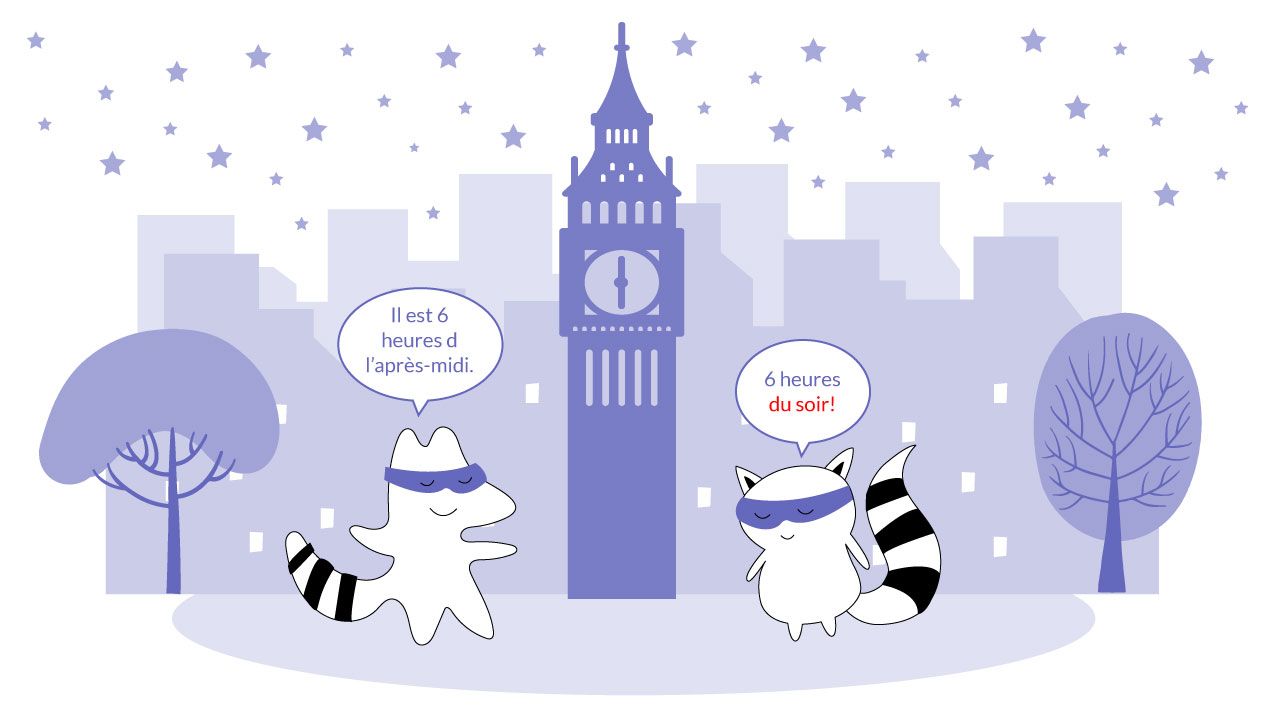
Saying the Word “Heure” out Loud
When saying time out loud in French, there is one more thing you need to incorporate into your speech: the French pronunciation of the word “heure”.
When telling time in English, saying “o’clock” is optional. However, in French it’s necessary. After you say the time, always add “heure” – unless you’re saying “midi” (noon) or “minuit” (midnight). If that’s the case, “heure” is not needed.
Basic Time Words in French
In French, there are a number of words used to talk about time, similar to the English time expressions. These words are important for any French learner to know, as they are used frequently in everyday conversation.
Here are a few examples of the most basic words you need to know from time vocabulary in French:
Native
Translation
time
temps
hour
une heure
minute
une minute
second
une seconde
week
une semaine
When asking someone what time it is in French, you need to use the phrase “Quelle heure est-il?” (What time is it?). You can also informally ask “Il est quelle heure ?” – the English translation would be the same.
Native
Translation
Quelle heure est-il?
What time is it?
Il est quelle heure ?
What time is it?
However, when responding to this question you need to use the following phrase:
Il est _____ heure (_____). In the first blank space, put the number, and in the second – additional phrases that are used to specify the time.
Here are some phrases you use when telling time using French numbers:
Native
Translation
Il est une heure
It’s one o’clock
Il est deux heures
It’s two o’clock
Il est deux heures et quart
It’s quarter past two (2:15)
Il est deux heures et demi
It’s half past two (2:30)
Il est trois heures moins le quart / Il est deux heures quarante-cinq
It’s quarter to three (2:45)
Il est trois heures dix
It’s ten past three (3:10)
Il est trois heures vingt
It’s twenty past three (3:20)
Il est trois heures moins dix / Il est deux heures cinquante
It’s ten to three (2:50)
Il est trois heures moins vingt / Il est deux heures quarante
It’s twenty to three (2:40)
Il est midi
It’s noon
Il est minuit
It’s midnight
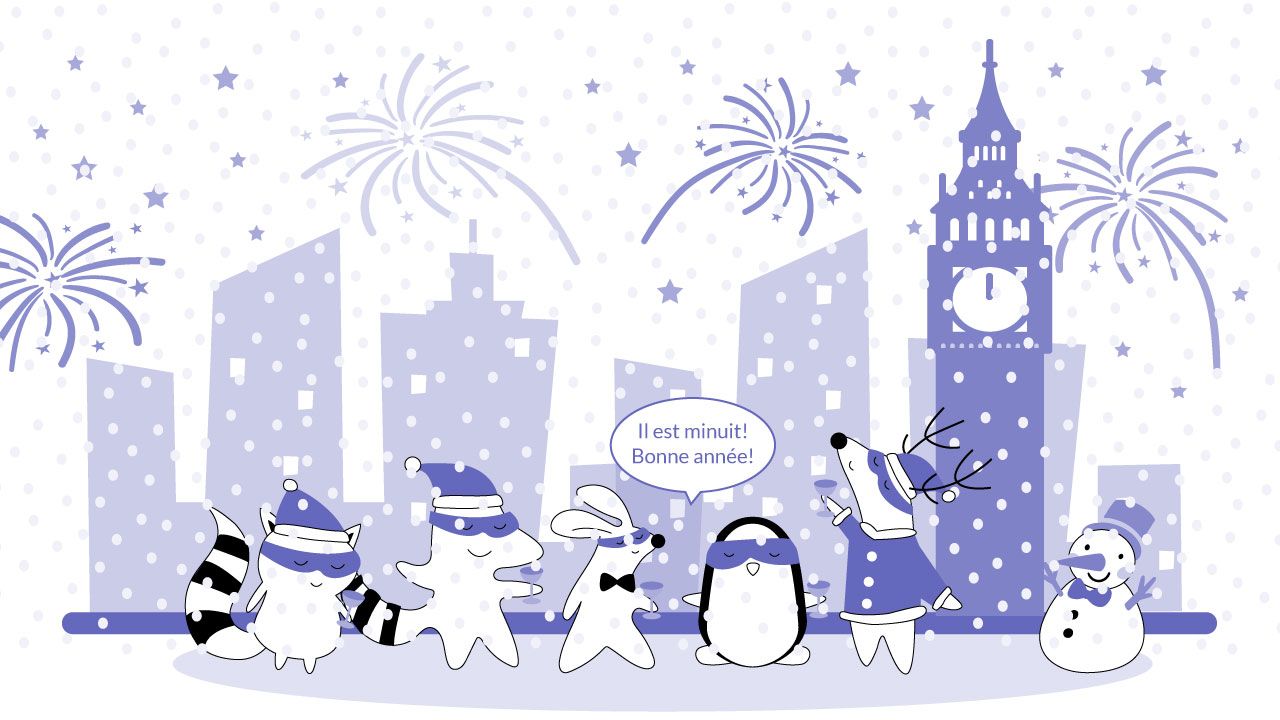
And, let’s repeat: for telling the time using 12-hour clock, you would say:
Native
Translation
Il est huit heures du matin
It’s 8 am (8 in the morning)
Il est cinq heures de l’après-midi
It’s 5 pm (5 in the afternoon)
Il est huit heures du soir
It’s 8 pm (8 in the evening)
Please note that using the fractions in French (et quart, et demie and moins le quart) is considered informal and should only be used when you’re talking about time from 1 to 12 hours.
When moving into the 24-hour clock, you should use quinze, trente, etc. Nevertheless, many French people don’t abide by this rule.
Periods of Time in French
Of course, to tell time in French, you need to know not just how to talk about hours, but also how to talk about periods of time.
Here are the words and phrases talking about present time in French:
Native
Translation
aujourd’hui
today
ce soir
tonight / this evening
maintenant
maintenant
tout de suite
right now
ce matin
this morning
cette semaine
this week
cet après midi
this afternoon
ce mois
this month
And here are some of the phrases that should help you talk about the past in French:
Native
Translation
il y a
ago
il y a cinq jours / heures
five days / hours ago
le mois dernier
last month
la semaine dernière
last week
l’année dernière
last year
hier
yesterday
avant-hier
the day before yesterday
hier soir
last night / evening
hier matin
yesterday morning
hier après-midi
yesterday afternoon
Finally, to talk about future, use this French vocabulary:
Native
Translation
demain
tomorrow
après-demain
the day after tomorrow
dans un jour / mois
in one day / month
la semaine / le mois / l’année prochaine
next week / month / year
demain matin
tomorrow morning
demain après-midi
tomorrow afternoon
Other Important French Time Expressions and Words
Now that we covered the most important time words in French, let’s move on to some other French words and expressions you might need to know when talking about time.
Native
Translation
le jour
day
la nuit
night
l’aube
dawn
le crépuscule
dusk
lever de soleil
sunrise
coucher de soleil
sunset
le lendemain
day after / the next day
la veille de
the day before
il y a peu de temps
a little while ago
tout de suite
right away
le calendrier
the calendar
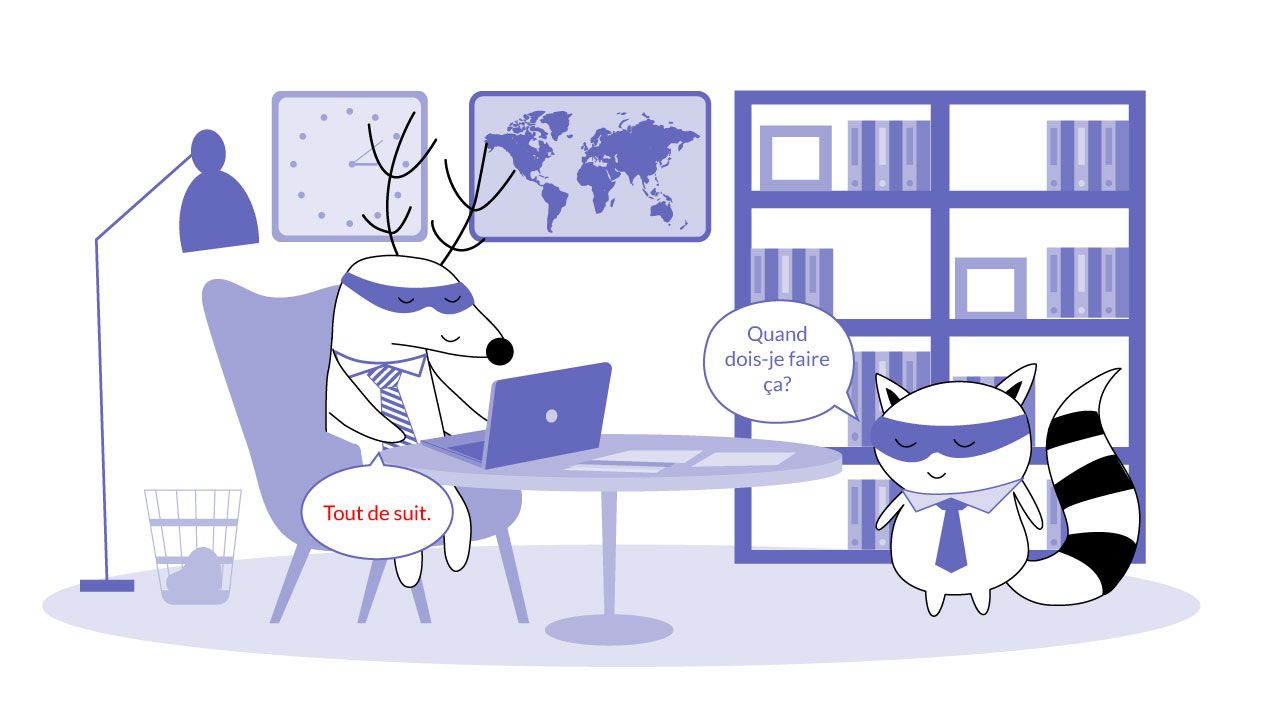
French Adverbs Used with Time Expressions
When talking about time, we often use several adverbs. Here are some of the French temporal adverbs:
Native
Translation
actuellement
currently
alors
then
après
after
auparavant
previously
avant
before
bientôt
soon
cependant
meanwhile
ensuite
afterward
longtemps
for a long time
n’importe quand
anytime
tout à l’heure
all the time
puis
then
récemment
recently
tard
late
tout à coup
suddenly
vous avez l'heure
do you have the time?
Final Thoughts on Telling Time in French
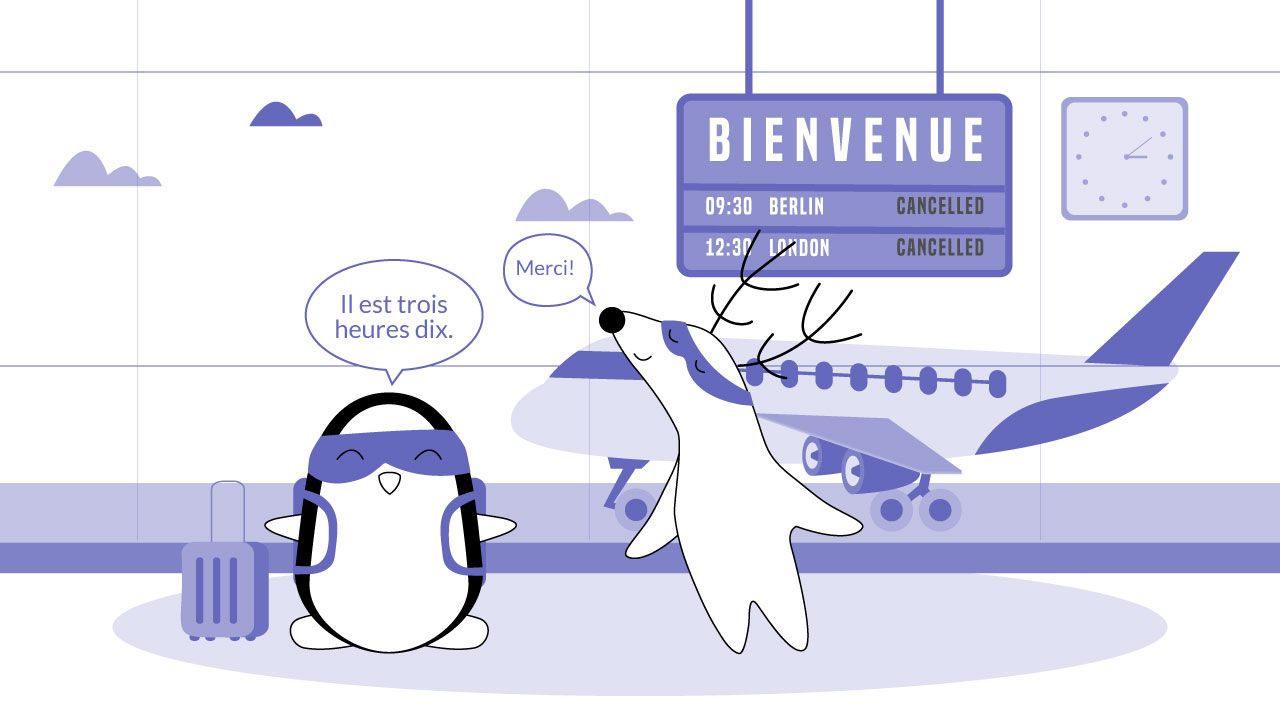
Now that you know how to tell time in French, it's important to practice! These phrases and words will come in handy when talking about time – show your knowledge of French! Use them to ask time on your next trip to France or other French-speaking country. You can also use it during your French lessons.
And if you don’t know where else to practice, download our app and see these and other French words used in real short stories. Bookmark our blog to learn more about the French language – and we hope that you have fun learning it further on.









